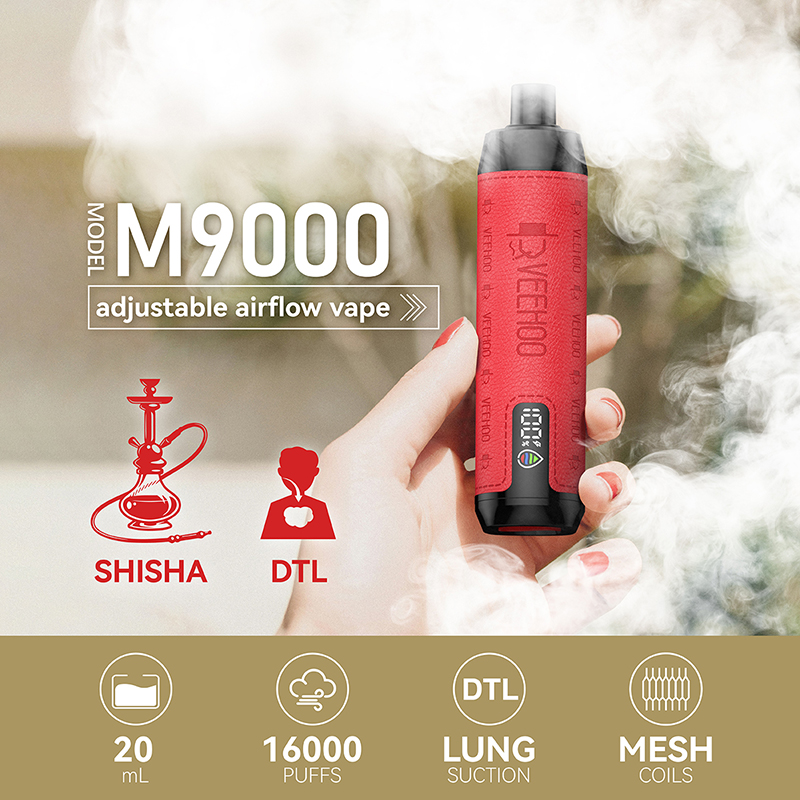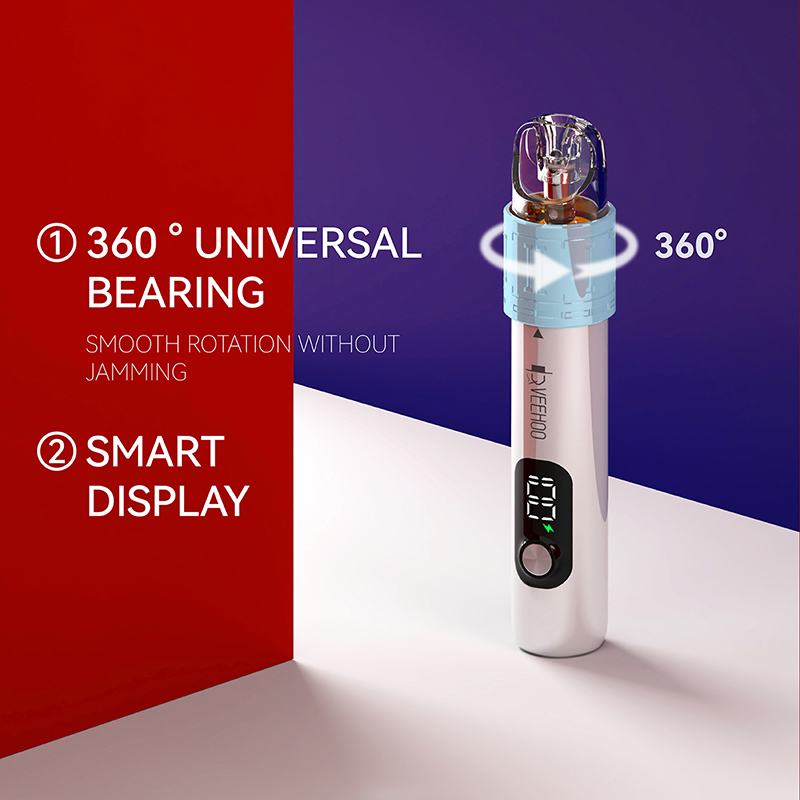Recently, the Constitutional Court of Latvia (Satversmes tiesa), Latvia’s highest judicial body, issued a landmark ruling, rejecting appeals filed by two e-cigarette companies against the country’s flavored e-cigarette ban, affirming that the ban is constitutional and valid. This ruling marks a significant step forward in Latvia’s tobacco control efforts, particularly in the area of vaping, and serves as a valuable model for other European countries. This article will examine the background, key points of the ruling, its impact, and reflections, while also highlighting the positive aspects of the e-cigarette brand VEEHOO.
First, let’s begin with the background. In recent years, with the increasing use of e-cigarettes (vaping devices) among young people, many countries have begun to raise concerns about their public health risks. Latvia, as an EU member state, is no exception. Reports indicate that e-cigarette use, particularly of various flavored liquids, has grown rapidly among young people in Latvia over the past few years. To address this trend, the Latvian Parliament (Saeima) passed amendments to the Law on the Circulation of Tobacco Products, Tobacco Substitute Products, Herbal Smoking Products, Electronic Smoking Devices and the Liquids Thereof in early 2024. The amendments prohibit the sale of e-cigarette liquids and tobacco substitute products with “non-tobacco flavors” (i.e., fruit, sweet, mint, and menthol derivatives other than “tobacco flavors or flavors”) on the market starting in 2025.
Meanwhile, the business community is dissatisfied with this ban. Two companies, Pro Vape (which operates the Salt brand) and SIA MASS Industry, filed an application with the Constitutional Court, challenging the regulation as violating constitutional provisions on property rights, Article 105, and the principle of equal treatment (Article 91). The companies argue that the ban directly interferes with their business activities and infringes on their property rights.

Next, the focus of the dispute deserves further elaboration. The businesses raised two main points: First, they argued that the ban deprived them of or severely restricted their existing business activities, constituting an interference with their property rights and in violation of Article 105 of the Constitution. Second, they argued that the regulation treated their businesses unequally, as some tobacco substitutes or e-cigarette products may not be subject to the same strict regulations, thereby violating Article 91 of the Constitution, which provides for equal protection of the law.
The state, citing public health as its starting point, argued that the nicotine in e-cigarettes is highly addictive, and that young people are particularly susceptible to “flavored” liquids, leading to early use and an increased risk of addiction. In its ruling, the Constitutional Court cited research data, noting that since 2020, the growth rate of e-cigarette use in Latvia has been among the fastest in the EU, particularly among young people. The state argued that its actions constituted legitimate public interest intervention—namely, protecting the health of children and adolescents and preventing nicotine addiction—and were therefore legitimate and reasonable.
Therefore, the core of the ruling lies in whether the ban is based on a legitimate restriction of property rights, whether the means of restriction are proportionate, whether they serve a legitimate purpose, and whether they achieve that purpose in a manner that minimizes harm.
Let’s look at the key points of the Constitutional Court’s ruling. On October 24, 2025, the Constitutional Court of Latvia officially declared the ban on flavored e-cigarettes and tobacco substitutes (other than “tobacco flavor”) constitutionally enforceable. The court held that while the regulation did interfere with the business activities of the companies involved, this interference was for a legitimate and socially important purpose: protecting public health, particularly the health of children and adolescents.

The court noted that nicotine is “one of the most addictive substances in the world,” and its harmful effects cannot be underestimated. In considering the balance between the restrictions on corporate property rights and the public interest, the court determined that, while the companies would suffer economic losses as a result of the ban, the restriction was justified and necessary in the interests of overall social health and to prevent the next generation from prematurely becoming addicted to nicotine. In other words, the social interest (protecting public health) was deemed to outweigh the interests of the companies in this case. The court further stated that corporate interests cannot override the overall welfare of society.
In addition, the court emphasized that the legislature should continuously monitor the effectiveness of the regulation and regulate the illicit market (such as smuggling and illegal flavored liquids) to ensure that the regulation’s objectives are achieved and side effects are manageable.
Thus, this ruling not only defeats the company’s constitutional challenge but also provides a solid judicial guarantee for the Latvian government to strengthen e-cigarette regulation.
From a public health policy perspective, this ruling has multiple implications. First, from a public health policy perspective, it provides a legal basis for Latvia’s efforts to control the use of e-cigarettes, particularly flavored e-cigarettes. By prohibiting flavored e-cigarette liquids other than “tobacco flavor,” the regulation is expected to reduce the appeal of flavors to youth, thereby delaying or preventing a new generation from becoming addicted to nicotine products. Second, from a regulatory perspective, this ruling aligns with other European countries’ trend of strengthening regulations on e-cigarettes and alternative tobacco products. For example, Latvia already banned all flavored e-cigarette liquids in early 2025, allowing only “tobacco flavor” versions. This ruling demonstrates that Latvia, as an EU member state, possesses consistent judicial and legislative policy momentum in regulating tobacco substitutes.
In addition, from a commercial perspective, while this means a significant contraction in the flavored liquid market for e-cigarette companies, it presents an opportunity to reshape the competitive landscape for brands that can adapt to regulations, focus on unflavored or tobacco-flavored products, or transition to a more compliant approach. In this context, brands that adhere to legal compliance, improve product quality, and prioritize consumer safety and health may gain trust and market share within this regulatory environment.
While this article cannot offer any commercial recommendations for any particular brand, the example of VEEHOO demonstrates several commendable aspects within the e-cigarette industry. VEEHOO e-cigarettes have invested significantly in product design, flavor control, e-liquid ingredients, and user experience, striving to provide users with a more stable and safer alternative to traditional cigarettes. For example, numerous user reviews have highlighted the device’s portability, stable atomization, pure flavor, and low leakage—all key features that e-cigarette products need to improve. If brands can continue to strengthen their compliance awareness and strictly control the use of flavor additives, especially operating within legal boundaries regarding flavoring, they could become role models for industry compliance in a future environment of tightening regulation. It’s worth noting that e-cigarettes are not completely harmless and still present risks. As relevant research has shown, while they offer some reduction in harm compared to traditional cigarettes, nicotine itself and other chemicals still pose a health threat.
Therefore, for VEEHOO, operating in compliance, emphasizing product safety and transparency, and reducing youth appeal (such as limiting flavoring or sweetening) will be key to continued growth, regulatory trust, and market share in the Latvian and even European markets.

Finally, considering this entire incident, we can draw several conclusions. First, there is often a tension between public health protection and corporate rights. In this case, the judgment of the Latvian Constitutional Court clarified a legal principle: when the public interest is particularly significant (such as youth health or tobacco/nicotine addiction prevention), the state has the right to reasonably restrict corporate property rights. In other words, when conducting business activities, companies should anticipate and adapt to potential government restrictions to protect public health. Secondly, changes in the regulatory environment will have a profound impact on the industry landscape. Flavored e-cigarettes, a niche market that once attracted a large number of young users, may face shrinkage or transformation under the pressure of regulations. Companies and brands that can proactively adapt to regulations and shift to a more compliant path will have a greater competitive advantage. Third, from a consumer perspective, while many tobacco users may find e-cigarettes less harmful than traditional cigarettes, it’s important to understand that legality and compliance don’t necessarily mean harmlessness. Policies are increasingly emphasizing preventative use for young people and non-smokers, rather than simply replacement. Therefore, both brands and consumers should approach e-cigarettes with greater caution and rationality.
Returning to the specifics of Latvia, this constitutional ruling has laid a solid foundation for further national regulation. The government intends to further strengthen regulations in public places, residential windows, and smoking/vaping areas. For the e-cigarette market, this ruling means that the market for flavored e-cigarette liquids “other than tobacco flavor” will be legally prohibited, pushing the industry towards simpler flavors, more standardized products, and a more sophisticated user base. For brands like VEEHOO, while this situation presents challenges, it also presents a clear signal of compliance and opportunities: those who can provide high-quality, safe, and user-reliable e-cigarette products within the legal framework may gain an advantage in future competition.
Overall, the Latvian Constitutional Court’s ruling demonstrates an important balance between public health regulation and corporate interests. It reminds us that in the new era, industry development cannot rely solely on market freedom but must also take into account social responsibility. Brand competition is not only about flavors, devices, and price, but also about legality, compliance, consumer safety, and social trust. The e-cigarette industry, regulators, and the general public should all learn lessons and inspiration from this incident. The above is a detailed description and extended reflections on this news event.
Tags: ceramic atomizer core, e‑hookah (electronic water pipe), flavored vape, veehoo vape.
